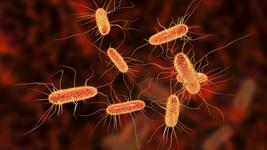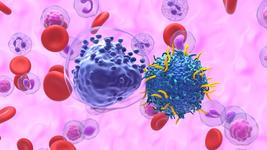CMN Weekly (16 August 2024) - Your Weekly CRISPR Medicine News
CMN Intelligence - The World’s Most Comprehensive Intelligence Platform for CRISPR-Genomic Medicine and Gene-Editing Clinical Development
Providing market intelligence, data infrastructure, analytics, and reporting services for the global gene-editing sector. Read more...
Top picks
- Scientists in China have reported the structural basis for the activity of the newly identified RNA-targeting type VII CRISPR-Cas system. The system uses a ribonucleoprotein complex formed by Cas5 and Cas7 proteins to target RNA, but in contrast to the effector nucleases of the other CRISPR-Cas systems, RNA cleavage by the type VII system is executed by a dedicated Cas14 nuclease. To understand the structural basis for this difference, the team resolved seven cryo-electron microscopy structures of the Cas14-bound interference complex at different functional states. Their findings were published this week in Nature.
Research
- In an article published yesterday in Communications Chemistry, researchers in Finland and Netherlands report a simple and versatile biorthogonal luminescent reaction (BioLure assay) to analyse intracellular delivery. They propose that BioLure can be used to estimate the amount of intracellularly delivered molecules after electroporation, and they show that the estimates obtained via the assay correlate well with complementary analysis methods. They propose BioLure as a versatile tool for understanding the intracellular delivery process in live cells and establishing the link between the cytosolic concentration of intracellularly-delivered biotherapeutics and their therapeutic efficacy.
- In an attempt to augment the efficiency of CRISPR-Cas9-mediated homology-directed repair (HDR), researchers at ETH Zurich and Memorial Sloan Kettering Cancer Center in New York sought to identify suppressors of CRISPR-Cas9-mediated HDR by performing a genome-wide CRISPR screen in Fanconi anaemia (FA) patient lymphoblastic cell lines. FA is a rare disease that arises through loss-of-function mutations in any of > 20 different genes and is characterised by bone marrow failure and increased risk of developing cancer later in life. The mutations underlying FA also greatly reduce HDR, which makes it very difficult to develop gene-editing therapies for the disease. They found that a single exonuclease, TREX1, reduces HDR efficiency when the repair template is a single-stranded or linearised double-stranded DNA. They furthermore show that TREX1 expression can be used as a biomarker for CRISPR-Cas9-mediated HDR because the high levels of TREX1 expression observed in many different cell types predicts poor HDR outcomes. Their findings, published earlier this week in Nature Biotechnology, demonstrate rescue of HDR efficiency (with up to eight-fold improvements) either by knocking out TREX1 or by using single-stranded DNA templates chemically protected from TREX1 activity.
Clinical
- In an article published earlier this week in The Lancet Infectious Disease, Locus Biosciences announced positive results from the randomised, uncontrolled, open-label Part 1 of its two-part Phase 2 ELIMINATE trial of LBP-EC01 in uncomplicated urinary tract infections. LBP-EC01 is a CRISPR-Cas3-edited bacteriophage therapy under development to treat antimicrobial-resistant (AMR) and multi-drug-resistant (MDR)E. coli infections. Part of the trial enroled 39 adult female patients in the United States, with the main objective to define a dosing regimen of LBP-EC01 and oral trimethoprim/sulfamethoxazole to advance to Part 2 of the trial. The trial met the primary and secondary endpoints of pharmacokinetics and safety, respectively, and dosing has commenced in Part 2, which is a controlled, double-blind study. See the official press release here.
- Precision BioSciences announced that the FDA has cleared an IND application by Precision's partner TG Therapeutics, to investigate the potential of azer-cel to treat progressive forms of multiple sclerosis. Azer-cel is an investigational allogeneic anti-CD19 CAR-T cell therapy developed by Precision Biosciences for the treatment of various cancers (global rights for azer-cel in cancer transferred to Imugene in 2023), and licensed to TG Therapeutics for the treatment of autoimmune diseases. TG Therapeutics anticipates commencing a Phase 1 clinical trial in 2024. See the official press release for further details.
Industry
- Fate Therapeutics reported second quarter 2024 financial results and shared business updates this week. According to the press release, enrolment is ongoing with the company's FT819 1XX CAR T-cell product candidate in a Phase 1 autoimmunity trial in patients with lupus, and the first patient has been dosed with the company's FT522 CAR natural killer cell product candidate in the conditioning-free arm of a Phase 1 B cell trial in patients with lymphoma. The company reported $352 million in cash, cash equivalents and investments with project operating runway until the end of 2026. See the press release for further details.
- Vor Bio reported second quarter 2024 financial results and provided a business update late last week. Among the main updates are that enrolment is rapidly ongoing in the Phase 1/2 trem-cel trial with 21 acute myeloid leukaemia (AML) patients dosed with trem-cel so far, and patients are receiving Mylotarg at the third dose level. Trem-cell is developed from healthy donor haematopoietic stem and progenitor cells, which are CRISPR-Cas9-edited to delete the CD33 gene. CD33 is a cell surface antigen that is abundantly expressed in the majority of AML cases, and it is one of the main validated target antigens in AML to date. Gemtuzumab ozogamicin (Mylotarg™) is the only CD33-directed antibody-drug conjugate to be approved by the FDA and European Medicines Agency for the treatment of AML. The next data update is expected in the second half of 2024 and will include engraftment and haematologic protection data, and additional Mylotarg pharmacokinetic data. The company also expects to provide a clinical update on several patients have been followed out for more than one year. See the official press release for further details.
- Iovance Biotherapeutics reported financial results and corporate updates for the second quarter and first half of 2024. See the official press release here.
- In an article published yesterday in Molecular Therapy Methods & Clinical Development, Excision Biotherapeutics shared pre-clinical data on EBT-104 in a rabbit model of HSV-1 keratitis. EBT-104 is a CRISPR-Cas9-based gene-editing candidate designed to inactivate the latent HSV-1 virus by co-targeting two essential HSV-1 genes, ICP0 and ICP27. In summary, the latest data shows that EBT-104 eliminated viral shedding in 92% of treated rabbits' eyes, suggesting curative potential for corneal blindness caused by HSV-1, which affects about 1.5 million globally each year.
Reviews
- Precision epigenetic editing: Technological advances, enduring challenges, and therapeutic applications. In this review, epigenome editing pioneer Lei (Stanley) Qi and colleagues at Stanford University review currently available tools for targeted epigenetic editing, technical considerations of those technologies, and opportunities for future development. They also describe applications of therapeutic epigenetic editing and their potential for treating disease, with a discussion of ongoing delivery-related challenges that hamper certain clinical interventions, particularly in the brain.
- A Review of Gene Therapies for Hemoglobinopathies. Authors in the US review gene modification strategies explored to treat haemoglobinopathies. Approaches based on zinc finger nucleases, CRISPR-Cas9, TALENS and gene silencing, as well as prominent clinical trials in sickle cell disease and beta thalassemia are covered.
Huh, Heh, Wow
Scientists Use CRISPR to Enhance Aroma Quality of Apple. A team of researchers based at Shandong Agricultural University (China) used CRISPR-Cas9 knockout, gene silencing and overexpression to modify the genes involved in fatty acid-derived volatile production and salt stress tolerance of apples. The results of the study, published in Horticulture Research, provide now insights into improving the fruit aroma quality of crops under salt stress conditions. Read a summary of that study here.
To get more CRISPR Medicine News delivered to your inbox, sign up to the free weekly CMN Newsletter here.
Tags
ArticleMissing linksNewsCMN WeeklyExcision BioTherapeuticsFate Therapeutics, Inc.Iovance BiotherapeuticsLOCUS Biosciences, Inc.Precision BioSciences, Inc.Sangamo Therapeutics Inc.TG TherapeuticsVor Biopharma
CLINICAL TRIALS
Sponsors:
Base Therapeutics (Shanghai) Co., Ltd.
Sponsors:
Base Therapeutics (Shanghai) Co., Ltd.







